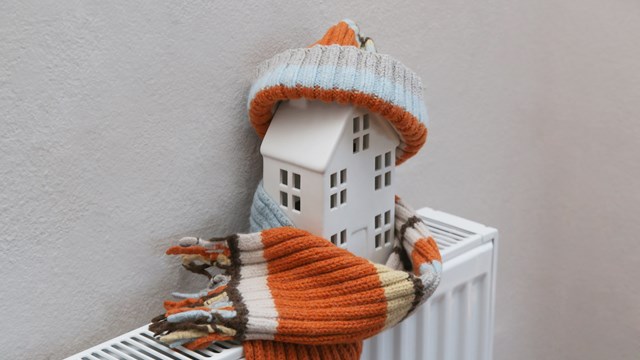
Every condo association has its own house rules—rules and regulations (hopefully) based on common sense and aimed at protecting residents’ safety and quality of life without undue disruption or inconvenience.
Most unit owners would not argue with rules prohibiting “floor hockey” matches in the building’s hallways, nor would most boards try to enforce archaic rules such as “Milk bottles may not be placed in the lobby or on the front steps.” However, there are times when rules and regulations that once made sense have become antiquated, irrelevant, and in need of change. There are other times when an overzealous board will attempt to institute a new rule of questionable need or legal means of enforcement. And implementing and enforcing such rules may invite unwanted litigation as well. Our experts have laid out a few ‘rules and regulations’ of their own about the key to writing and enforcing good house rules for your condo, townhouse or co-op building.
Law & Order
The first thing that owners need to understand is that when you are buying in to a condo or a co-op you’re not ‘the master’ of your domain. Even in the case of new construction, most of the rules are already in place. A basic set of bylaws and rules which can later be amended if necessary are included in the initial offering plan before the units are filled or a board is elected. A unit owner technically only owns the inside four walls of his unit and has a proportionate interest in everything that is common. In order to live harmoniously there has to be rules. That’s why condominiums have boards of trustees. A board’s main goal is to maintain that harmony. Anyone who has ever served on a board knows that it is important to remember that, for better or for worse, associations are to be run as a democracy. Board members are elected to represent the association as a whole. They are, in fact, “the voice of the people.” Any actions they take need to be in the best interests of the association.
Good Rule/Bad Rule
Most governing documents (the proprietary lease and bylaws for co-ops and the declaration of covenants, conditions and restrictions (CC&R) and bylaws for condo associations) will contain a statement that the board has the power to implement or change the house rules in any way it sees fit without the consent of the owners. But, attorney Robert Galvin of the Boston-based law firm of Davis Malm & D’Agostine warns, “changes must be carefully considered.”
“When I have a new condo as a client,” says Galvin, “I read through the existing documents. I don’t suggest wholesale changes, except where the problems may be really glaring.”
Conversely, Galvin explains that fairness is the key. Rules need to make sense for the building. And they need to be uniformly applied. If a board finds that it continually needs to make exceptions to a rule, then it is likely a bad rule.
When Galvin meets with condo associations, he explains what is “within the scope of the board’s powers.” The most important question a board should answer before it institutes a new house rule is: Do we (the board) have the power to enact such a rule? A board will not gain the protection of the business judgment rule if it enacts a rule that goes beyond the powers granted to it by the bylaws.
Many condo associations’ bylaws and rules are either outdated or no longer fit that particular condo. How often should the board (or the attorney representing that board) re-examine or reassess their bylaws?
The attorneys interviewed for this article agree that there is a gap between how often boards should re-examine their bylaws, and how often they actually do so.
“In an ideal world,” attorney Stephen Marcus of the law firm of Marcus, Errico, Emmer & Brooks in Braintree, Massachusetts, recommends that the documents be reviewed “at least once a year.” He notes that it would be very good if it were done once every few years. “We find some condos where 10 or 15 years after the rules are created, members come to me and say, “'We were looking through the documents now and want to modernize them.’ ”
Marcus points out that house rules are only valid and enforceable if they do not violate any part of the bylaws or (in some cases) a proprietary lease. A recent case held that a house rule prohibiting pets was unenforceable because the bylaws incidentally referenced pets in the bylaws section pertaining to nuisance.
Enforceability is also the key to a good rule. A rule is only as good as its enforcement mechanism. There must be an enforcement mechanism in place so that if the rule is broken, a reasonable consequence is applied. The enforcement mechanism must be reasonably related to the broken rule. While fines are enforceable, a judge will not enforce a fine as a penalty. The touchstone of an enforceable fine for a breach of a house rule is whether the fine represents a reasonable approximation of actual loss or expense incurred by the condo or co-op.
Making Amend(ments)
If life in a condo or a co-op is a democracy then the board’s governing documents (a proprietary lease or declaration) is their so-called Constitution. Most boards cannot make or enforce rules that contradict (are protected by) these documents but a new rule may still be needed. They also cannot enforce any rules that are deemed illegal. Some bylaws may still contain archaic yet currently illegal language referring to age, class or race that require removal to avoid confusion and claims of discrimination.
Most governing documents have detailed information as to what steps are needed to amend any of its laws. This often requires the participation of shareholders or owners. Bruce Cholst, an attorney and author specializing in co-ops and condos, states that, “co-ops almost always require a super majority of two-thirds to three-fourths of all outstanding shares in order to pass an amendment to the bylaws.”
For condos, the type of majority vote that is necessary is not set down in state law, but should be in your governing documents. In some condos, it could be a two-thirds majority; in others, a bare 51 percent; in still others, 75 percent.
Boards often try to create new rules to address non-existent or “possible” problems. Marcus advises that no matter how well-intentioned a board might be, it should always bear this in mind since introducing additional restrictions to these types of issues will only “rile up” residents and that seldom ends well. It’s not good to regulate only for the sake of a minor problem.
“Fix only what’s broken,” concurs Cholst, “One of the errors that I often see in house rules is that they have a dragnet effect. They go much further than what is necessary to address a real problem. If the problem is noise generated by a chronic opera singer who practices eight hours a day and there are no other problems with stereos then there is no need to impose any regulations about how stereos have to be six inches off the ground and you can’t use bass, etc. Draft your rules as narrowly as possible to address the problem and nothing else.”
Most attorneys like to remind boards that effective communication with those who will be most affected by the new rule or rules is necessary. In some cases an inadequate amount of notice or information is given about the details of the meeting in which a vote will be held, or even the rule that is being changed. This can lead to a needed rule not being passed or not enough people attending to attain a quorum.
Improper communication also leads to some owners feeling ignored or deceived. According to Marcus, many boards simply fail to communicate clearly the intended goal or the rationale behind a new regulation. Often owners are angered because they are left with the perception that the board is regulating to simply exert its power.
Most attorneys recommend that the board accompany a controversial set of regulations with a newsletter or possibly a special shareholders’ (or unit owners’ meeting) in which they explain what the perceived need is and how this new regulation is going to address that need within the community; whether or not people agree with the board’s logic. Explaining that there is some rationale behind what the trustees are trying to do will diffuse a lot of anger. The board may not get tremendous, wholehearted and enthusiastic support, but the board will at least get grudging compliance. Sometimes this is all a board needs to do to effectively enforce the rules.
Finally, when it comes to enforcement, Cholst advises, “Don’t be too polite.” Make your rules as demonstrative, direct and succinct as possible. When boards are afraid to use clear mandatory language they undermine their own authority and the new rule can be easily ignored or misinterpreted. Don’t simply suggest, “Tenants should leash their dogs at all times.” Clearly state, “Tenants must leash their dogs at all times.”
See You in Court!
When it comes to maintaining and enforcing the rules it is imperative to do everything you can to avoid being subject to legal challenge. There are condo “tenant vs. board” related cases that remained in the courts for more than six years. Very seldom is it beneficial for a board to be embroiled in costly, time-consuming litigation. Cases such as these have the potential to become divisive within the community as a whole, clearly disrupting the “harmony” its board was elected to maintain.
Boards of trustees, more often than not, are not particularly sympathetic plaintiffs. When it comes to enforcement, most condo boards simply levy fines, but when that fails, some boards choose to seek an injunction against the problem owner in court. But “judges hate those kinds of cases,” says Marcus. More often than not, all efforts prove to be extremely expensive and pointless.
Don’t Litigate. Mediate.
Galvin concludes that the easier form of conflict resolution that tends to yield better results is also the most underutilized: professional mediation. He estimates that 85 percent to 90 percent of mediated cases usually result in amicable resolutions. “It’s a remedy that for some reason has never gotten, in my opinion, enough support from the condo and co-op community.”
The experts agree that the key to writing and enforcing good house rules is for the board to consult their attorneys and make sure that: (1) They are in fact allowed to adopt new rules without owner approval; (2) That the rule is permissible according to the laws of the governing documents; and (3) That they understand what they may or may not do to enforce the rule.
In most cases, all a board needs to do is utilize caution, practice sound judgment and a little restraint to keep their building community happy and violation-free. These common-sense words of advice will help the board do what they have been elected to do, and as a result keep harmony in the community, too.
J.M. Wilson is a freelance writer and a frequent contributor to New England Condominium.






Leave a Comment